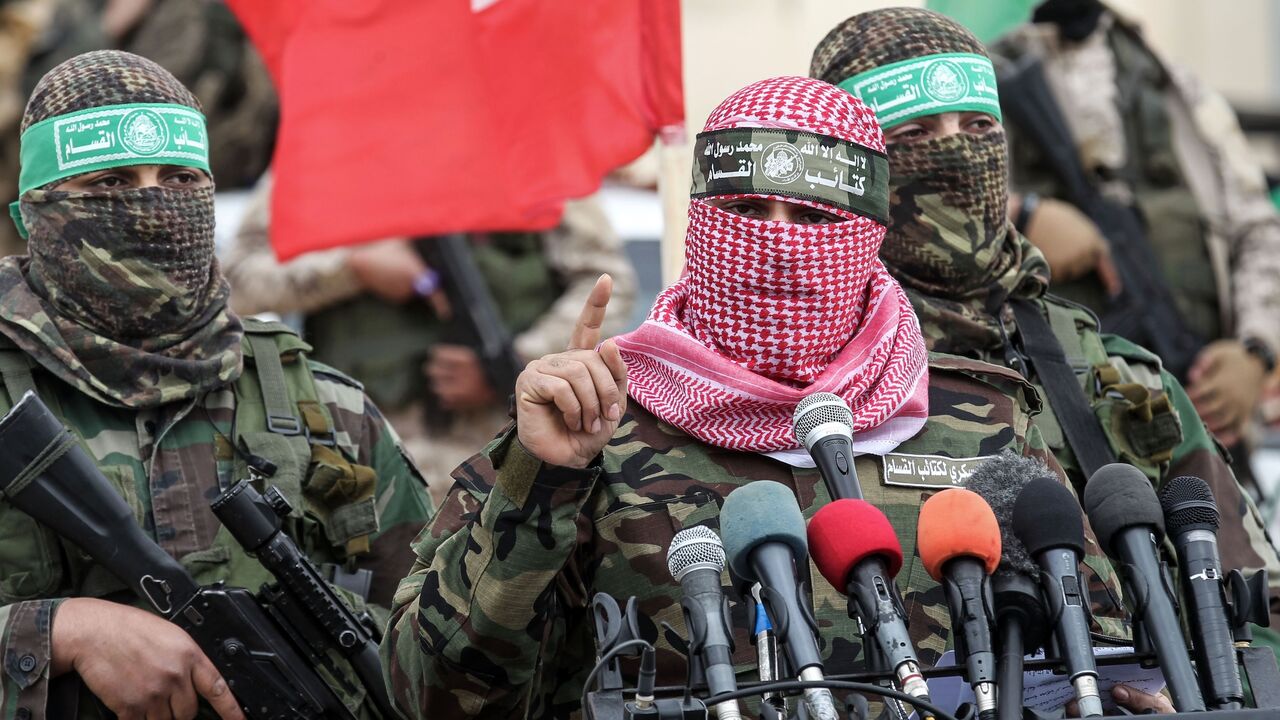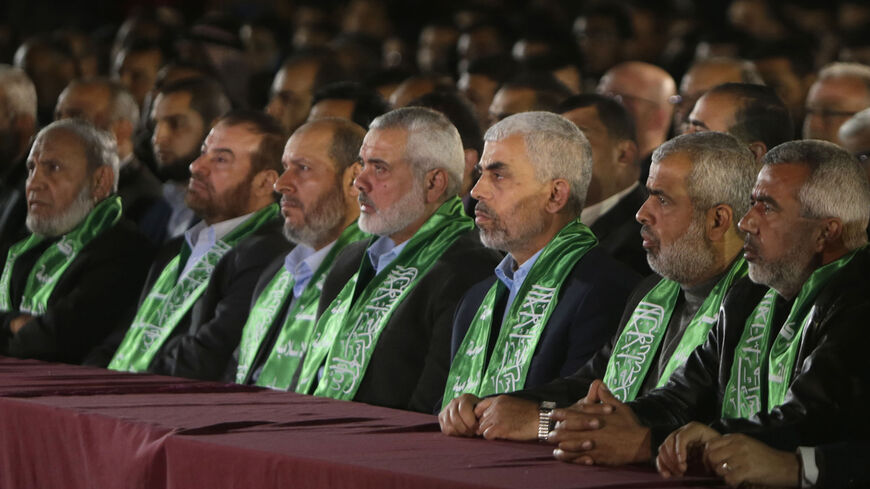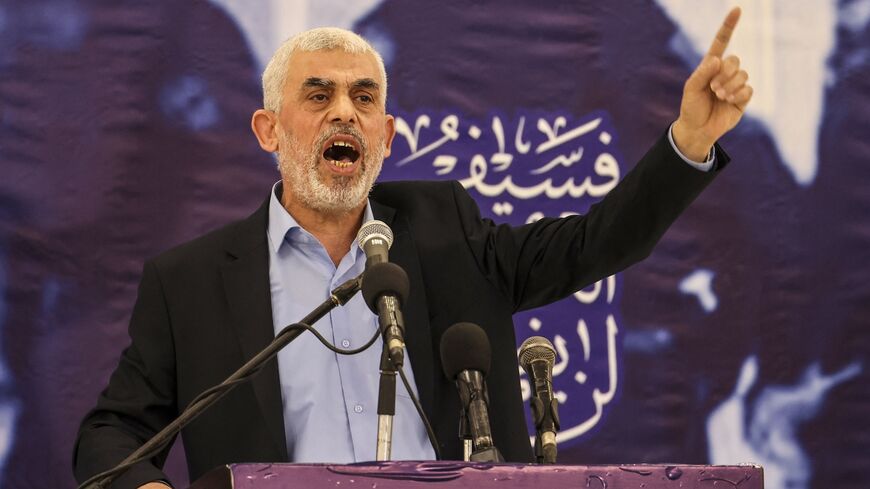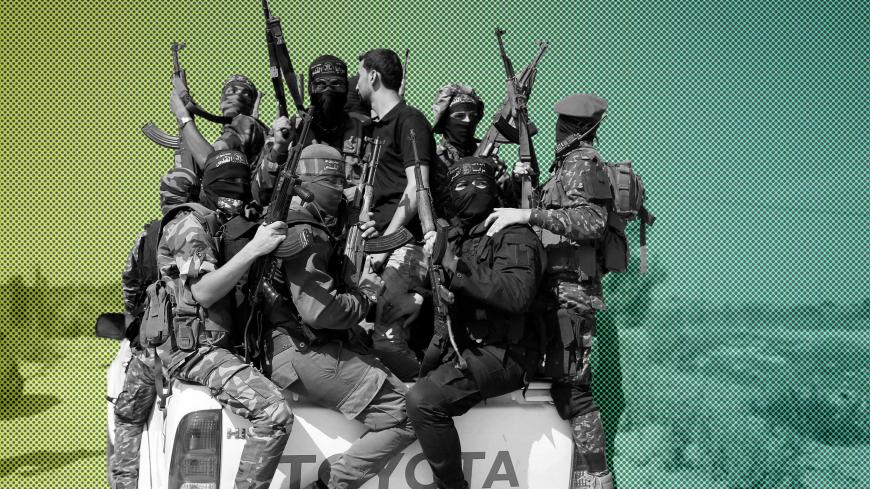US unveils sanctions on Hamas spokesperson Abu Ubaida
The US Treasury Department also targeted Hamas members linked to the group’s cyber and drone operations in Lebanon and Gaza.

WASHINGTON — More than six months after Hamas launched its deadly attack on Israel, the Biden administration has sanctioned the militant group’s masked propagandist in the Gaza Strip.
Little is publicly known about Abu Ubaida, a nom de guerre for the longtime spokesperson of Hamas’ armed wing, the Izz ad-Din al-Qassam Brigades. He gained international notoriety after Oct. 7, during which Hamas-led militants killed some 1,200 people and took another 240 hostage in southern Israel.
In the aftermath of Hamas’ massacre, Abu Ubaida, whose real name is believed to be Hudhaifa Kahlout, appeared frequently in propaganda videos uploaded to the popular messaging app Telegram or aired on pan-Arab news network Al Jazeera. His face is always concealed in the videos, typically with a red keffiyeh.
After Israel launched its counteroffensive in Gaza, Abu Ubaida threatened that Hamas would broadcast the execution of Israeli captives each time the Israel Defense Forces bombed a civilian house without warning. No executions were aired, although Israel estimates dozens have died in Hamas captivity. The militants have blamed their deaths on Israeli airstrikes in the crowded Palestinian enclave.
According to the Treasury announcement, Abu Ubaida is more than just a mouthpiece for Hamas. He allegedly leads the armed wing's “cyber influence department” and was involved in procuring servers and domains in Iran to host its website in cooperation with Iranian institutions.
The Treasury Department on Friday also blacklisted Hamas members linked to the group’s cyber and drone operations, including William Abu Shanab, the commander of the Lebanon-based al-Shimali unit that is heavily involved in the manufacture of drones and other weapons that Hamas uses to conduct its operations. The department also imposed sanctions on Abu Shanab’s assistant and an al-Shimali unit intelligence official.
The US government has ramped up efforts to cut off the militant group’s access to the international financial system. Since October, it’s announced several rounds of sanctions on Hamas' financial facilitators and senior leaders, and those managing assets in the group’s secret portfolio of real estate and other investments.
Treasury's top official on terrorism, Brian Nelson, pledged Friday that Washington would continue targeting Hamas’ networks, including in the cyber domain.
“Today’s joint action reinforces our continued, collective focus on disrupting Hamas’ ability to conduct further attacks, including through cyber warfare and the production of UAVs,” Nelson said in a statement.
In coordination with the United States, the European Union on Friday added three armed groups to its sanctions list for their role in sexual and gender-based violence on Oct. 7. The sanctioned entities are the Izz ad-Din al-Qassam Brigades, a special forces unit of Hamas called the Nukhba Force and Palestinian Islamic Jihad’s armed wing, the Al-Quds Brigades.
The new sanctions come as the United States is working with mediators Egypt and Qatar on a deal to free at least some of the remaining hostages held by Hamas in return for the release of Palestinians held in Israeli prisons and a six-week pause in the Gaza war. Hamas has reportedly told negotiators that there aren’t enough living hostages to fulfill the first stage of the framework deal, which calls for the release of 40 female, wounded and elderly captives.











